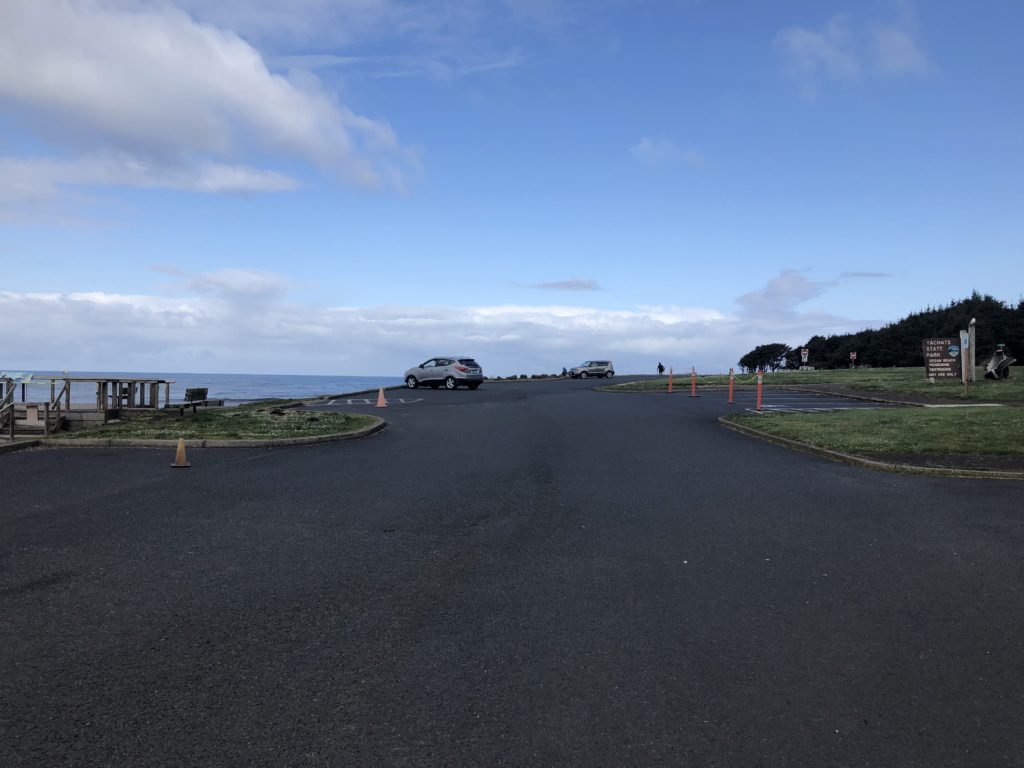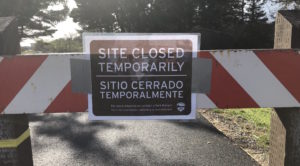
By DICK HUGHES/Oregon Capital Bureau
Gov. Kate Brown said the far-reaching executive order she issued this week should not stop immediate families from driving around for relaxation or hiking a trail, as long as they maintain proper social distancing while hiking.
“The goal here is to limit your social circles. The goal is to stay away from crowds. The goal is to maintain social distancing,” Brown said of Oregon’s efforts to stem the spread of COVID-19.
“Oregonians are very innovative and creative, and I encourage them to comply with the spirit and the letter of the executive order.”

In her executive order Monday, Brown said the need for a strong “Stay Home, Save Lives” directive was reinforced by seeing that crowds had gathered last weekend at the Oregon coast, Smith Rock State Park, Columbia River Gorge and other places in defiance of social distancing guidelines.
State parks, public and private campgrounds, and many other recreation sites now are closed, either under the governor’s order or voluntarily. Oregonians are allowed to go outside for recreation so long as they maintain appropriate social distancing — at least for six feet, except for family members living in the same residence.
Oregon’s beloved ocean beaches are not closed but getting there – legally – could be problematic.
“The state parks closure doesn’t impact the ocean shore, but it does close all state park-managed parking lots and beach accesses,” said Liz Merah, a spokeswoman in the governor’s office. “The Oregon Parks and Recreation Department has the authority to close the beach temporarily for health reasons.”

And that department said in the FAQs posted online, “If people don’t get the message that clumping up and overwhelming local areas is a bad idea, we’ll have to revisit the decision to leave all beaches open.”
Some coastal cities and counties also have closed beach access, as well as lodging, in part to keep visitors from spreading coronavirus and overwhelming local health facilities.
Lincoln, Clatsop and Tillamook counties all enacted emergency orders Sunday or Monday to close hotels to recreational travelers and clear out vacation rentals shorter than 30 days. That seemed to be working during Oregon’s spring break – coast motels were nearly vacant or closed, shops shuttered and traffic very light.
Oregon State Police Superintendent Travis Hampton noted that most campgrounds and boat ramps are closed, so Oregonians and visitors should research their plans before heading out.
In a letter sent to all police agencies in Oregon, Hampton emphasized that Brown’s order was not close to martial law. People don’t need documentation showing they are traveling legally to or from work or other permitted activities.
“There are no curfews and a person’s movements are not restricted under the Governor’s Executive Order,” Hampton wrote. “While details are offered in the order relating to social distancing, specific business closures and non-essential social gatherings, [Oregonians’] movements are generally unrestricted.”
Motorists should not be pulled over under suspicion of violating the executive order. “If, however, you are committing a traffic violation or crime that would be enforced independent of the order, you may be stopped, like any other day,” he wrote.
As Hampton noted, the challenge may be finding a place to recreate.
The Oregon Capital Bureau in Salem is staffed by reporters from EO Media, Pamplin Media Group and the Salem Reporter and provides state government and political news to their newspapers and media around Oregon, including YachatsNews.com



